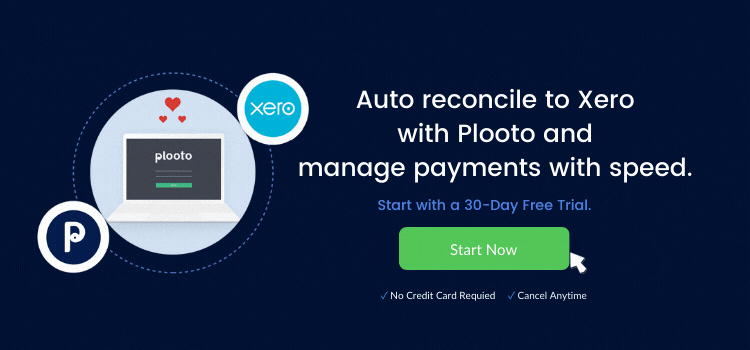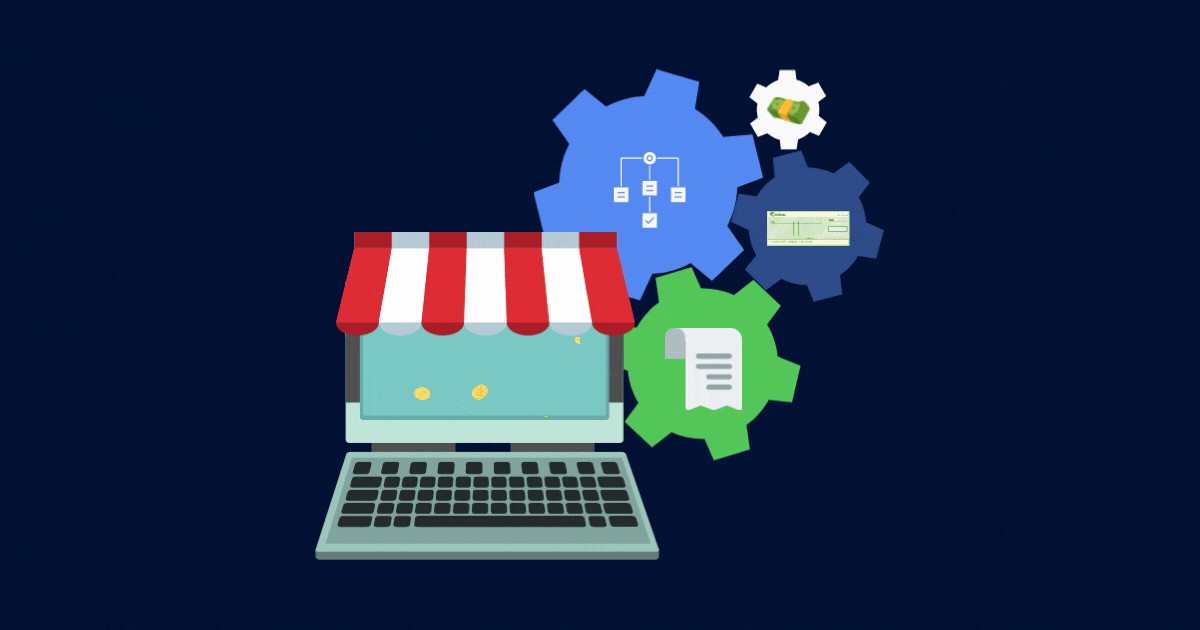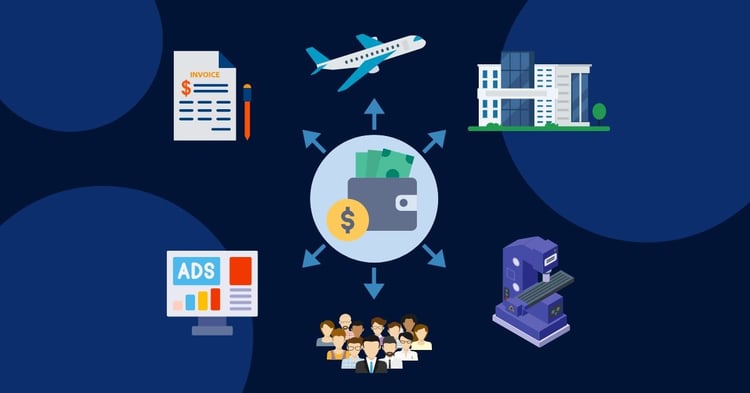
More money doesn't have to mean more problems, if you track business expenses accurately. Keeping track of your spending can help you make smarter decisions, stay on top of cash flow, and maximize profits – a big win for all small business owners. However, many people struggle to properly manage business expenses due to a lack of knowledge, time or resources.
In this article, we'll provide an overview of how to best manage and track your small business expenses so that you can take control of your finances while staying compliant with tax laws. We’ll also discuss what types of business costs are eligible for tax deduction – and which aren't – and list some popular software solutions to help you manage your expenses efficiently.
Sign up for a Free Trial today
SHORTCUTS
- Why does tracking business expenses matter?
- What business expenses should you track?
- What types of business expenses are tax deductible?
- What types of expenses are not tax deductible?
- When is the best time to track your expenses?
- How to track your small business expenses easily
- How to keep the books for your small business
- Top 6 expense tracker tools for small businesses
- How Plooto can help you keep track of business expenses
Why does tracking business expenses matter?
Tracking your expenses is an important part of managing a business of any size, though it's especially important for small business owners who can find themselves at the end of financial runway if they're not properly keeping track.
Not only does it help you understand where your money is going, but it also helps you identify areas where you can improve and save some money. It can help you make better decisions when it comes to budgeting and allocating your business' resources.
Additionally, tracking your expenses will help ensure that all of your taxes are properly paid on time, helping you avoid any penalties and fees. All in all, proper expense management is essential for any small business that wants to remain profitable and successful.
What business expenses should you track?
Every business has different expenses, but there are some common categories that most businesses will need to track to remain financially savvy. This list isn't exhaustive – you may find sub-categories that make sense for your specific line of work – but you can bucket most of your expenses into one of the following common categories:
- Rent and utilities
- Wages and salaries
- Supplies and materials
- Marketing and advertising
- Legal fees and taxes
- Travel costs
- Equipment purchases or repairs
- Miscellaneous Expenses
- Car and truck
- Commissions and fees
- Insurance
- Interest paid
- Home office expenses
- Other business expenses
While tracking all your expenses, be sure to keep your personal and professional expenses separate. Mixing the two can make reconciliation incredibly difficult.
What types of business expenses are tax deductible?
The beauty of some expenses is that they can be tax deductible. These are business costs that can be claimed as deductions when filing your taxes, reducing the amount of total taxable income – which is more money in the bank for you.
These expenses may include rent, utilities, wages, supplies and more. Below is a list of common business expenses that are tax deductible:
- Employee wages and salaries
- Rent for business property
- Business travel expenses
- Advertising and promotion costs
- Equipment purchases, repairs, and maintenance
- Insurance premiums
- Utilities used in the course of running a business
- Professional services (legal fees, accounting fees, etc.)
- Charitable donations related to the business operations
- Interest payments on business loans
What types of expenses are not tax deductible?
Now, not all expenses can be deducted. It's important to know which ones aren't to avoid any accounting headaches down the road, or potential penalties for mis-filing your taxes. The rule of thumb overall is if an expense is for the primary benefit of your business, it's likely tax deductible. If an expense is for the primary benefit of you, personally, it's likely not.
Here is a list of expenses that are not tax deductible:
- Personal expenses
- Entertainment (meals, tickets, etc.)
- Commuting costs
- Home office expenses
- Life or health insurance premiums
- Gifts and donations not related to business operations
- Capital expenditures (purchases that improve the value of an asset)
- Losses on investments unrelated to the business
When is the best time to track your expenses?
Every business owner has their own process for tracking expenses, but unless you like doing them in bulk at the end of each week or month, it's likely the easiest if you are doing it regularly and in real time. There are plenty of digital solutions available – see far below for our recommendations – that allow you to make expense tracking a simple and easy part of your daily workflow.
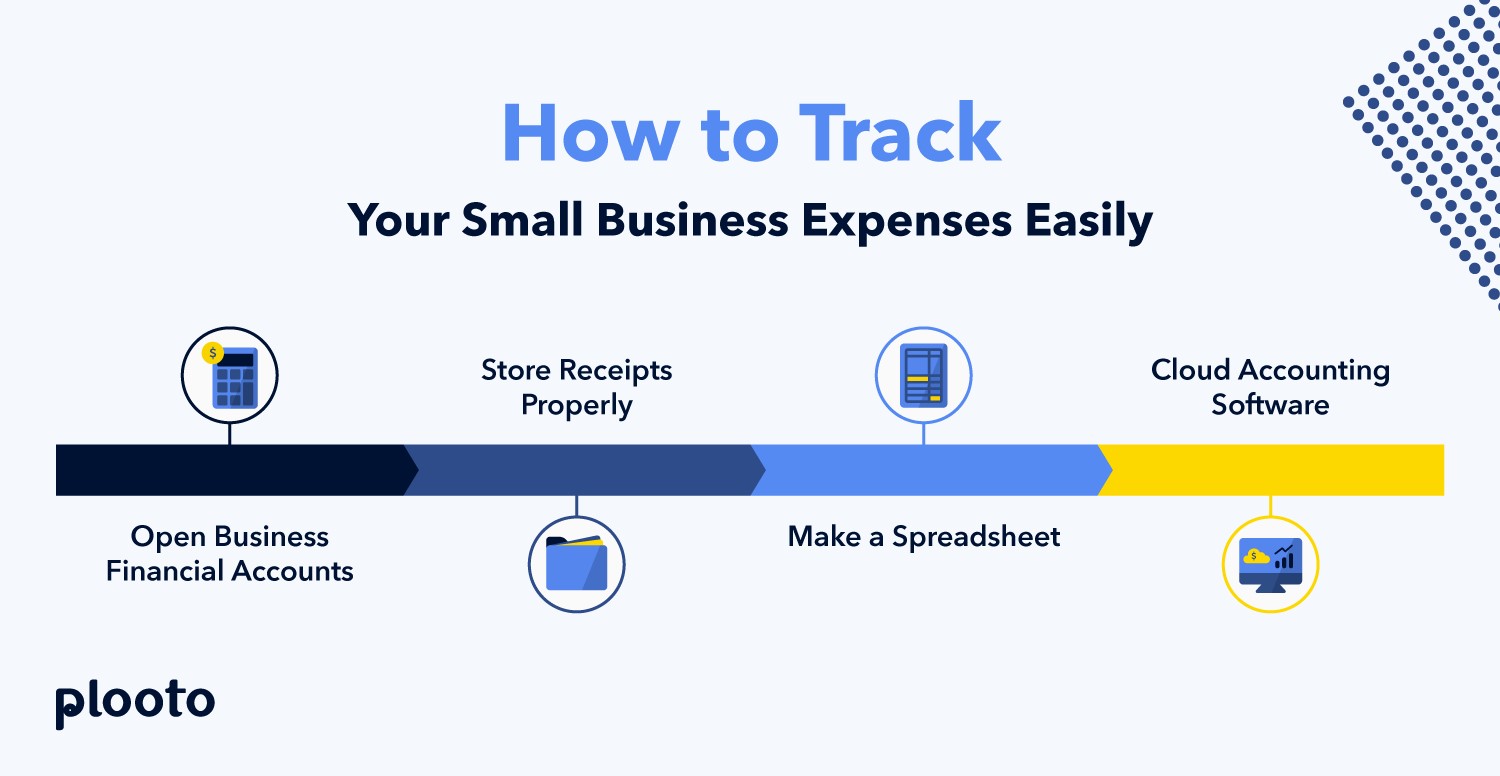
How to track your small business expenses easily
Here are the basics for easily keeping track of all your small business expenses.
1. Open business financial accounts
You need a place to withdraw, deposit and store all the money coming in and out of your business. Make sure these accounts are separate from any personal accounts you hold for ease of use.
2. Store receipts properly
Keep paper receipts organized by month, and in a single place so you never forget where they are. You can also opt to digitally store your receipts – again, in one place for ease of reference – using optical character recognition (OCR) technology through one of the software solutions below.
3. Make a spreadsheet
Document and categorize your expenses in a spreadsheet so that you can see the balances paid and owing in one place. Some software solutions also help keep this data in one place for easy analysis.
4. Use cloud accounting software
The pinnacle of expense tracking is integration with your accounting software so that you minimize human error, avoid duplicate data and keep everything in your expense process running smoothly.
By tracking your small business' expenses and utilizing the right tools, you can save time, money, and effort in managing your finances. It can also help you make better financial decisions to scale your business.
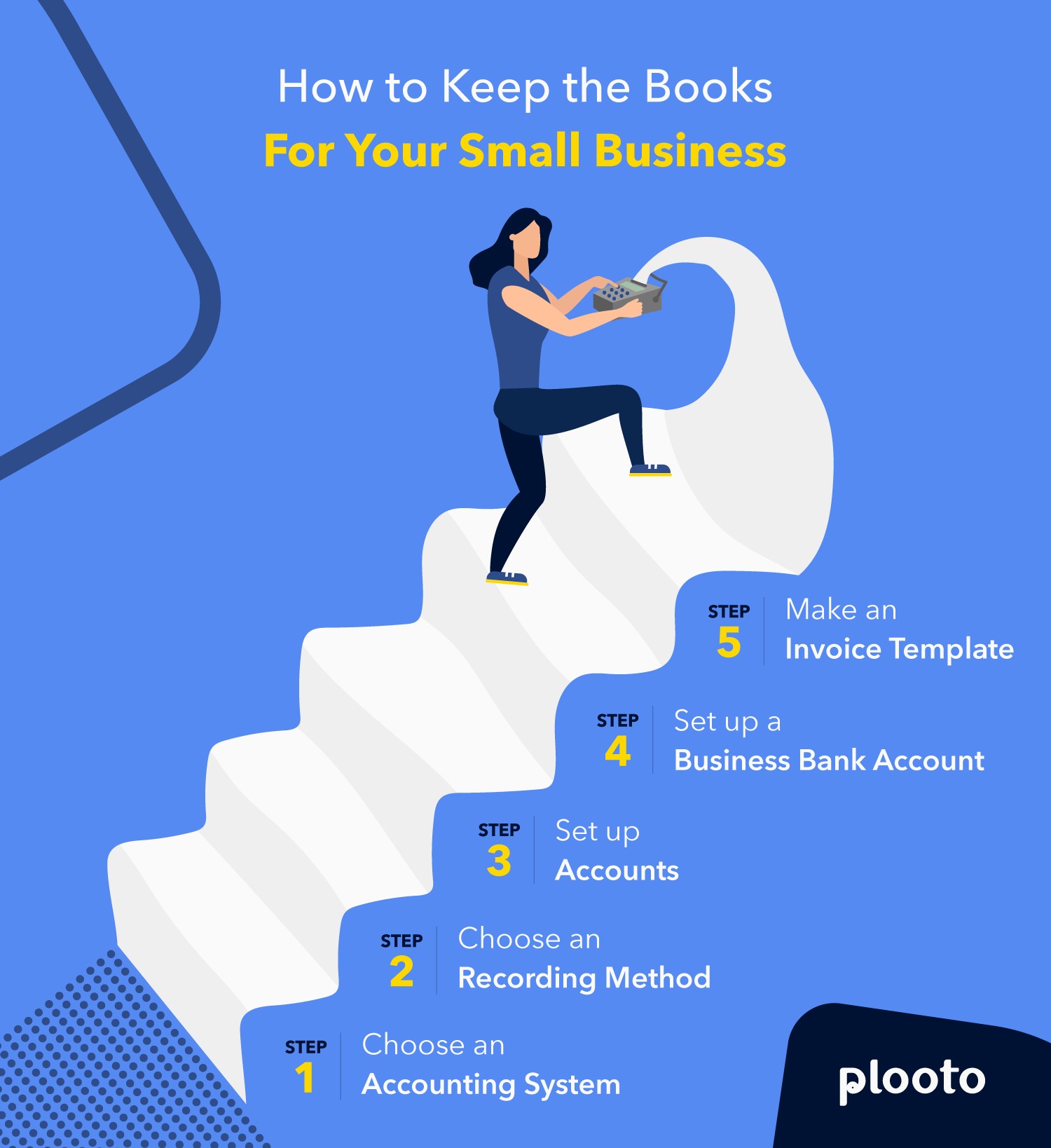
How to keep the books for your small business
Over and above keeping your individual expenses organized, every business looking to scale and succeed should have their entire accounting infrastructure in order. Keep your books organized by following these steps:
- Choose an accounting system
- Choose a recording method
- Set up accounts
- Set up a business bank account
- Make an invoice template
Top 6 expense tracker tools for small businesses
Below you'll find a shortlist of expense-tracking software that could help you keep your finances in check.
Expensify
A solid expense-tracking app for any entrepreneur.
Mint
Free-to-use expense tracker for those who are self employed.
QuickBooks
Robust expense management for businesses with accounting prowess.
FreshBooks
Another robust expense management platform, with a minimalist appeal.
Excel
Old faithful; when in doubt, Excel spreadsheets rule supreme.
Plooto
Automatically pulls in all outstanding bills and invoices from QuickBooks and Xero, creates ready-made payments for the invoices, collects invoices for your accounting software, deposits or collects the funds directly into or from the bank account, and reconciles the payments once the payment is complete.
How Plooto can help you keep track of business expenses
Plooto is a one-stop solution for tracking small business expenses, allowing you to easily manage, track, and pay all your bills in one place. With Plooto, you can also access your bank accounts and invoices from your accounting software – like QuickBooks – allowing you to reconcile quickly. All you need to fill out is your name and email to get started for free with a 30-day trial.
